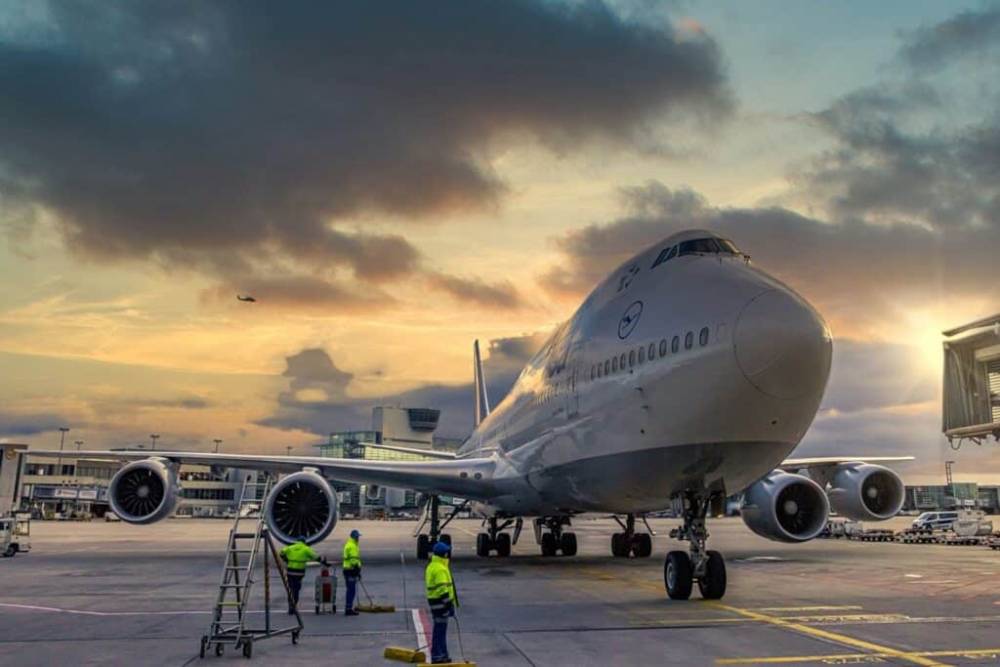
How to Know the Skills that your Resume Needs to Gain a Job as an Aerospace Engineer
The technological development of air and spacecraft benefits from the Work Of Aerospace Engineers. People in this industry have received extensive training in the technical aspects of creating and developing these aircraft. If you want to work as an aircraft engineer, you need to think about acquiring the necessary abilities. In this article, we define the field, explore some probable job responsibilities for aerospace engineers, list the essential skills, and determine the career.
What is an aerospace engineer?
Professionals in the highly technical discipline of aeronautical engineering develop and build various kinds of aircraft, including spaceships. In order to effectively and securely construct aircraft that follow state and federal standards, they must undertake considerable study, training, and certification. Aerospace engineers frequently create objects like spacecraft or missiles, which requires specialized knowledge and abilities. These experts can suggest upgrading existing machinery while also developing cutting-edge technologies. Aerospace engineers may design airplanes for particular businesses or work autonomously for individual clients.
Why are aerospace engineering skills essential?
Aerospace engineers play a crucial part in the development and manufacture of airplanes, which can significantly impact society. High levels of education are necessary for this profession; thus, it can be advantageous for prospective engineers to acquire valuable skills while they are in school. Due to the potential mechanical differences between air and spacecraft, experts must possess the skills to carry out their duties successfully. Engineers can succeed in building safe, morally-sound, and practical aircraft with a suitable skill set.
Eight skills for aerospace engineers
1. Making decisions:
Several engineers may collaborate on a project, necessitating collective decision-making. Making a well-informed decision supported by research and analysis is beneficial for engineers. Aerospace engineers must be capable of making decisions because they frequently do so while deciding how to design an aircraft, what materials to employ, or how to build a certain component of the craft. Making well-informed decisions can result in an aircraft design that is safer and more efficient.
2. Operations research:
Analyzing an aircraft's operations, including the design, production, and testing processes, is one of an aerospace engineer's responsibilities. Engineers must be able to evaluate the performance of operations since it enables them to spot potential improvement areas. For instance, aerospace engineers may create new testing procedures if they discover that a crucial component of the aircraft is missing from the testing process. Through enlarging and enhancing the overall testing procedure, these new operations might increase the safety of the airplane.
3. Problem-solving:
When designing and constructing an airplane, aerospace engineers use their problem-solving abilities to come up with answers. Engineers can find solutions and quickly put their ideas into action by developing their problem-solving skills. Consider the scenario where the new aircraft's blueprint design is due in two weeks. An engineer working on the project may take time before the deadline to create new drawings that illustrate the suggested alterations for the aircraft if an issue with the proposed design occurs. The engineer can demonstrate that the case was handled by displaying the original designs and revised blueprints.
4. Critical thinking:
Critical thinking is a crucial talent for aerospace engineers, just like it is for many other technological occupations. These experts must think critically when designing an aircraft because many of the planes they create could leave the earth's atmosphere. For instance, an aerospace engineer would use critical thinking to determine how to maintain the oxygen levels required for the number of spacecraft passengers. Engineers may boost everyone's safety and the efficacy of the aircraft by using critical thinking to identify possible problems before they become urgent.
5. Analytical thinking:
Analytical thinking is a talent that aeronautical engineers need, much like critical thinking. This way of thinking entails analyzing data and coming up with a workable answer. The mathematical and scientific components of this profession can benefit from analytical thinking. To examine each section independently, an engineer may mentally divide the elements of an airplane into discrete segments. The engineer could develop innovative ideas for a certain component of the craft using analytical thinking.
6. Creativity:
Although many engineers rely on technical abilities like math and physics for their jobs, creativity is also a requirement. Engineering teams can develop fresh, original ideas for new airplanes using their ingenuity. Engineers can use innovative improvements to stay on the cutting edge of the industry because this field changes regularly.
7. Math and science abilities:
Aerospace engineers use a multitude of science and math concepts in their work. While in college, they become familiar with a wide range of mathematical concepts and regularly use them in their work. When constructing airplanes, they also consider a variety of scientific ideas. In addition to using physics and aerodynamics, aerospace engineers may also use mathematics and trigonometry.
8. Computer Skills:
Strong computing abilities are advantageous for aerospace engineers as well. During their profession, engineers may do a wide range of computer-related duties. For instance, aeronautical experts may create new airplane drawings using industry-specific software. They might utilize spreadsheets to keep track of pertinent information or the computer to communicate with their team. Aspiring aerospace engineers may succeed if they learn how to use computers for various tasks.
Tasks performed by aeronautical engineers
Every day, several activities are carried out by aerospace experts. Each day may be different depending on the progress of an engineer's work. Here are a few tasks that aerospace engineers perform on the job. However, the same functions may vary depending on the types of aircraft they design:
- Create new aircraft and spacecraft for customers or a business.
- When necessary, repair and improve aircraft and spacecraft.
- Spot problems during testing and production.
- Create and put into practice solutions to problems.
- Conduct research and information analysis to create cutting-edge aircraft.
- Conduct comprehensive testing on aircraft to identify and fix any problems.
- Create aero planes with a focus on safety.

